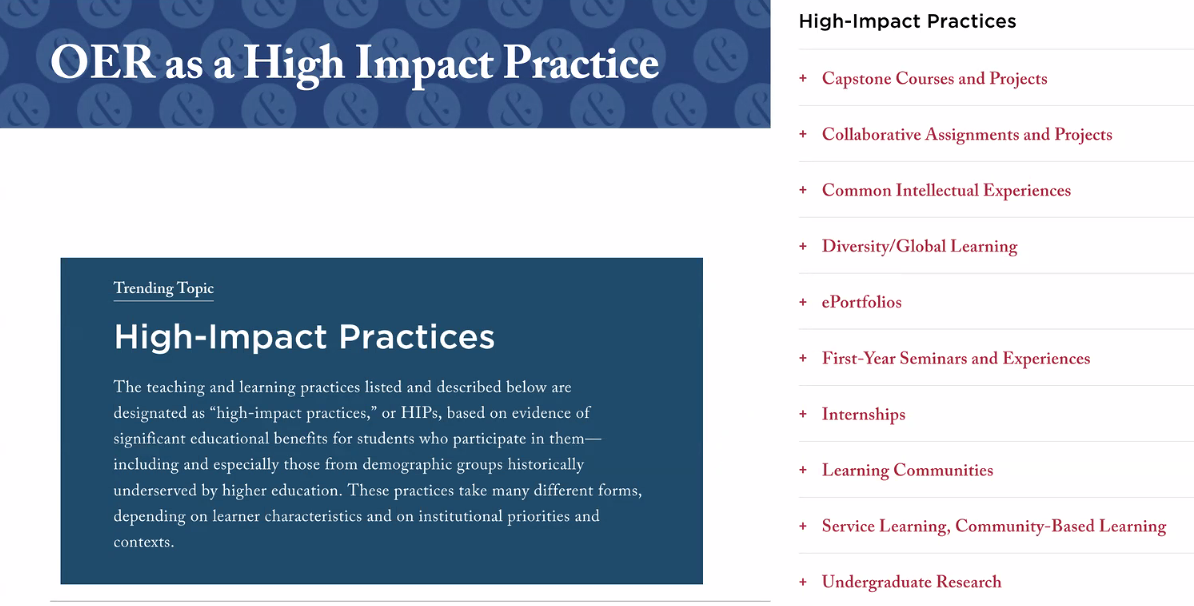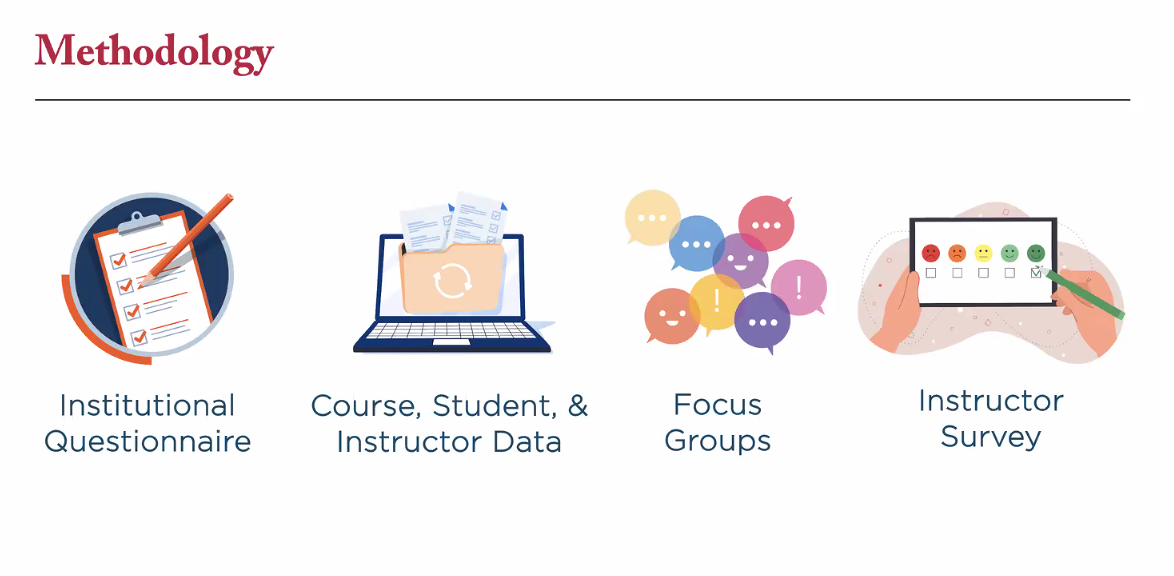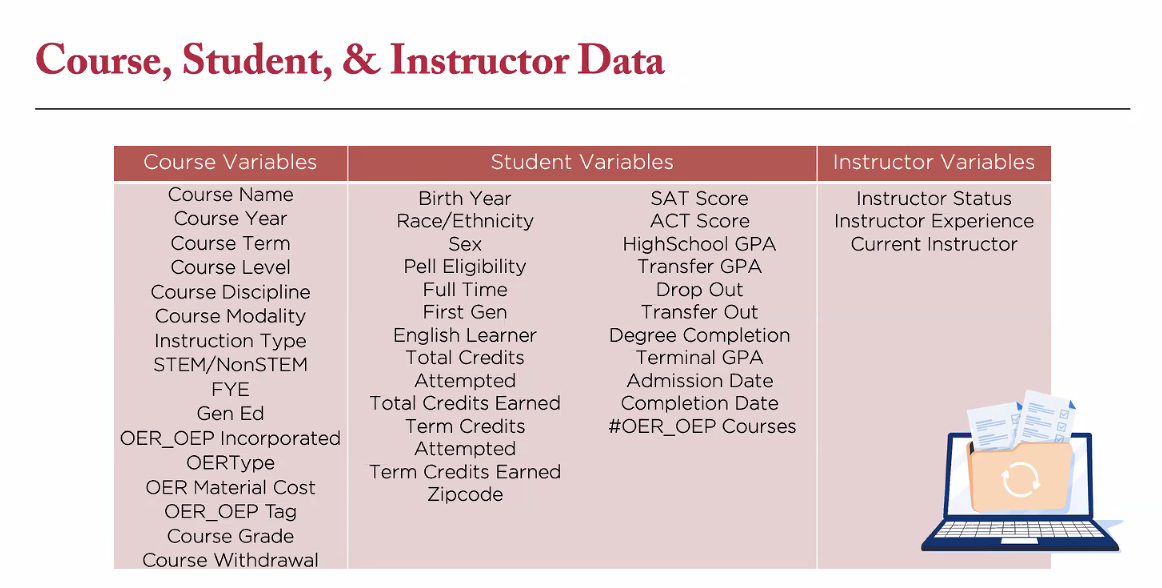Discussion
As the presenters share, High Impact Practices have evidence that they deepen learning within course settings and are proven to work for all students. And #OER can likely fall into this as well.
As part of this research, the team thoughtfully considered how they could limit bias and also get more robust data. For example, as they collected data on #OER adoption, they wanted more context about individual courses and instructors' adoptions, to account for ideal adoptions (localized, supported, integrated into LOs) and less ideal scenarios (simple flips)
It was also important for the research team to find instructors who were teaching the same courses pre-OER and post-OER, to better compare the outcomes across that data.
A lot of data was used to get a more complete picture of the courses, instructors, and students being studied, to help the researchers understand where variables might be affecting what they found. "Pulling this data was an experience," Heather Miceli notes. #OpenEd25
I'll leave it to the researchers to share their work in their own words, but some highlights:
- Course withdrawal rates saw a significant decrease across courses using #OER, though this was also affected by context, especially by variables in the students' life and needs.
The team has a lot of data exploring ties between #OER + other factors (institution, course, the student). There is a pattern here: the affect of OER on withdrawal rates is stable across the board, but OER helps students even more when they are in one or more underrepresented groups (e.g. Pell eligible students)
bonfire.cafe
A space for Bonfire maintainers and contributors to communicate


